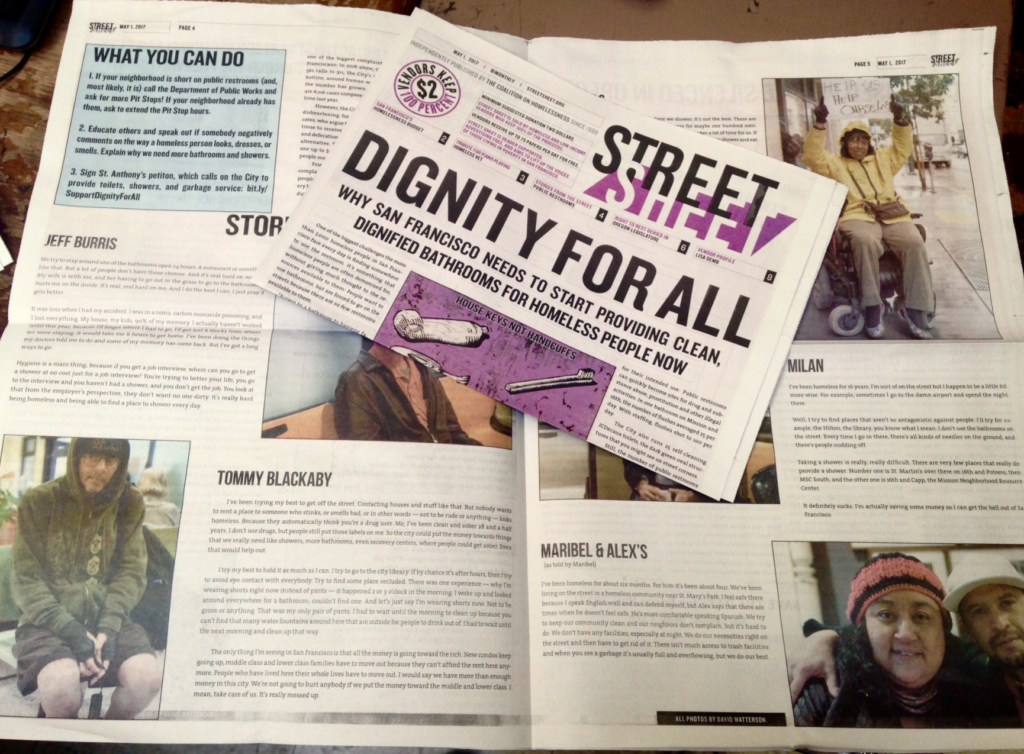Business Improvement Districts (BIDs) are areas of cities where property owners have voted to take over the roles of security, marketing, and management usually performed by local governments. Once created the city itself is responsible for collecting property assessments from the business in the district, and then turning that money back over to a BID board composed of property/business owners voted in by other property owners in the district.
These owners then have massive budgets that they can use to shape the districts however they see fit, without even the pretense of accountability to the community that the local government strives for. Many BIDs spend hundreds of thousands each year to pay for private security or hired “Ambassadors”, who represent constant surveillance and control of previously public space.
The goal of the BIDs is to make more money for the property owners, by marketing the
districts to potential consumers, higher-paying tenants, and large businesses. This means clearing out poor tenants, small businesses, and especially homeless people, according to the “Broken Windows” policing theory.
Since the 80’s thousands of BIDs have opened across the country.
A Short History—or Why BIDs happened
In the 1970s and 80s, federal funding decreased significantly and many cities experienced an economic slowdown. Reasons for this slowdown varied, but it was generally caused by movement of the city’s more affluent residents to the suburbs, and as a result, a decline in economic investment in cities. City downtowns had less funding for local services and therefore decreased their services, despite a common increase in demand. This included decreased services from the police, outdoor cleaning services and court systems. Downtown businesses believed that due to lack of funding, the city would be unable to meet their demands for a ‘clean and safe’ downtown. So, from 1975 to the present, they have lobbied their States for legislation that would enable them to petition their City government to implement a BID. Most were successful. It is estimated that there is between 700 to 1,500 BIDs in the US. With the support of their cities, who like that BIDs do the work for free, BIDs have expanded their borders, services and lobbying.
PUBLIC SPACE > PRIVATE SPACE
We all want to feel safe in our neighborhoods, but who are we afraid of? The answer from the
property owners is, the poor. The BIDs want to clear homeless people off the street and push
working class people out. For most of us the answer is different. We are threatened by banks, landlords, wealthy transplants, and the police, who keep pushing people out of their homes and onto the streets or into jail cells.
Public space is absolutely crucial for our survival. For those of us struggling against gentrification, police brutality, and incarceration, public space is a place to meet, to protest, to struggle. For those without private homes, it also means a place to sleep, to urinate, to exist without harassment.
The BIDs claim private control over that public space we need to survive. Many homeless people have reported being harrassed directly by BID ambassadors; being told to move along but given nowhere to go. Additionally, BIDs have been some of the most vocal opponents of state bills that would grant basic rights to homeless people.
So, what are a few major things I can do?
- Support solutions that address systemic issues
- Support Our City Our Home (Measure C) on the local ballot in November
- Support the Right to Rest Act in Sacramento which guarantees basic rights for people living outside
- Support more research on this issue
- Donate to the Western Regional Advocacy Project, the main organization spearheading research on the impacts of BIDs
- Support more public oversight of BIDs
- Find out where BIDs are located in your community and attend their public meetings
- Contact your district supervisor and let them know you support community involvement in BID decision making and stronger requirements for transparency of the BID programs and budgets
- Don’t support the ‘harassment model’
- Challenge unfair ‘nuisance laws’ in court
- Don’t call the police, especially on poor and homeless people for being poor and homeless
- Advocate for the removal of private security in the public sphere


